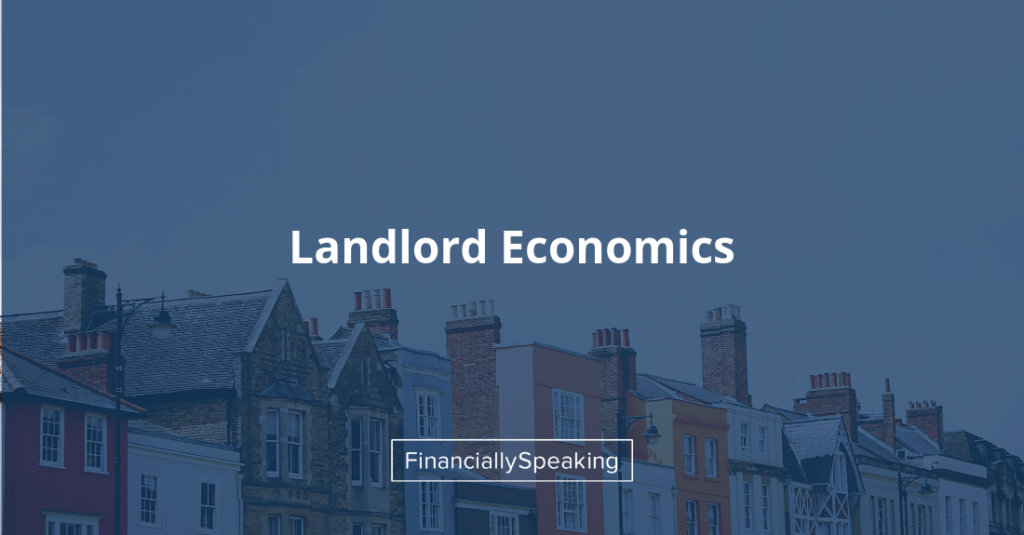So, you want to be a landlord?
I live near Boston where we have lots of three-family homes (“triple deckers” in the local patois). Often, homeowners choose to live in one unit and rent out the others for the income.
However, when you look closely at the numbers, it rarely makes good financial sense to be a landlord. Even if you are a Renaissance handyman, own a snowblower, and enjoy evicting tenants, the return on investment is usually lacking.
Landlord Economics
To frame this simply, you should understand three key numbers before you rent out your downstairs unit:
- What is the market value of the unit?
- What is the market rent?
- What are all the expenses associated with owning and maintaining the unit?
#3 is the hardest to determine and most likely to be underestimated. Be sure to include everything:
- Property tax and utilities
- Insurance (including liability insurance)
- Maintenance, upkeep, and repairs (don’t omit the infrequent but expensive ones such as a new boiler, painting, a new roof, etc.)
- Professional fees due to collections, evictions, tax preparation
- Lost rent due to apartment maintenance or a lag in finding a new tenant
- A price on your time
The easiest way to think about #2 and #3 is to express them as annual amounts that are a percentage of the market value of the unit. For example, let’s say:
- Your unit is worth $300,000 and you can rent it for $1,800 per month. Thus, your gross rental rate is 7.2% ($21,600/$300,000).
- Your annual expenses for this unit are: $5,000 of taxes, $1,000 of utilities, $1,000 of insurance, $3,000 of maintenance and repairs, $1,000 of professional service fees, and $1,000 of lost rent (e.g., ~1 month every two years). Thus, your expenses would be 4% of the value of the unit.
In this scenario, being a landlord generates ~$9,600 per year of income — a 3.2% return on the value of the asset. Sounds decent, you may be thinking.
Investment Alternatives
How does that 3.2% compare to alternative uses for that capital if you were to sell the unit and invest the proceeds? Poorly.
For example, the stock market yields 1+% in dividends alone and capital gains may add another 6 to 8% to that return; long-term bonds yield ~3%.
You may be thinking, “You’re ignoring the future appreciation of the real estate.” Yes, I am because residential real estate does not appreciate very much.
That may be inconceivable for those of you reading this on the east and west coasts, but ask your friends in Des Moines, Detroit, or Dallas and you may get a different perspective. Contrary to popular myth, residential real estate tends to appreciate only slightly faster than the rate of inflation over long periods of time.
Owning real estate for the expectation of future capital gains is not the best use of investment capital. You’re better off as a passive investor in stocks or long-term bonds, both of which have historically generated long-term gains in excess of residential real estate. Or, if you’re enamored with real estate as an investment option, choose a real estate investment trust. It’s a special type of mutual fund that invests in commercial real estate.
Why does investing in residential real estate offer a lesser financial return?
- It’s a money pit. You almost certainly lack the scale economies, expertise, and equipment of a commercial landlord to cost-efficiently manage the maintenance and repairs.
- It depreciates from the minute you buy it. Over time, there is inevitable wear and tear, construction methods improve, building codes change, design tastes evolve, and you’re stuck renting out last year’s model.
- Land use changes over time. While it is true that no new land is being created, existing land can be reclaimed or rezoned for residential use. Your investment may suffer if a high-rise apartment building appears across the street full of amenities you don’t offer.
- Transaction costs are high. It is expensive to buy and sell property compared to other investment assets.
- Your net worth is concentrated in a single asset. Investing that capital elsewhere allows you to diversify your asset base more broadly to generate higher returns with less risk.
I often hear client stories about real estate being their retirement nest egg. My reaction is always the same — you’ll have a bigger nest egg, fewer headaches, and better diversification if you sell it.
However, if painting the stairways, raking the leaves, and firing up the snowblower on a cold winter morning keep you young, then rent out the triple decker. Just don’t do it for the financial returns.
Update: Business Insider weighs in on this question. They reach a similar conclusion just looking at price appreciation alone but they’re ignoring the dividend yield of stocks and the costs of property ownership. When you include those factors, the differences would be more dramatic than they suggest.
